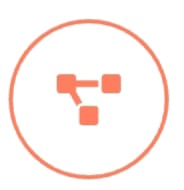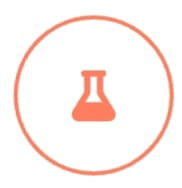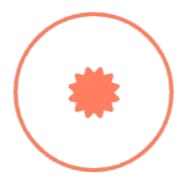Docker Certification Training course gives you a solid foundation for the official Docker Certified Associate exam. The Docker training program is designed from the ground up to teach new learners about the intricacies of the Docker containerization technology. The Docker Certification course starts with the fundamentals of Docker and works up to more advanced topics such as Docker Compose, Docker Swarm, handling Network and security, working with UCP (Universal Control Panel) and DTR (Docker Trusted Registry) in Docker Enterprise. Additionally, this Docker training course also introduces you to different storage strategies such as Volumes, Bind Mounts, and tmpfs mount, which will further help you optimize your containerized application’s execution. You will learn to use Docker Registry to manage and keep track of your custom Docker images, and finally, learn the basics of Kubernetes Container Orchestration tool with the Docker engine.
Upon completion of the course, you will be able to:
-
Understand the fundamentals of Containerization
-
Set up the Docker Engine
-
Deploy a Docker Container
-
Manage Docker Containers
-
Configure Logging Drivers
-
Create Docker images using a Dockerfile
-
Store and share Docker images using Registry
-
Utilize various storage strategies
-
Compose multi-container applications
-
Deploy a Swarm cluster
-
Configure network drivers
-
Secure the Docker Daemon
-
Set up Docker Enterprise (Docker EE)
-
Configure UCP and DTR for Docker EE
-
Deploy Kubernetes Pods and Deployments
-
Use Kubernetes Services for application discovery
-
Use Persistent Volumes for storage
Docker revolutionized the IT industry with the introduction of its Portable Lightweight Container Engine. More than 30% of the organizations in the IT industry have already adopted Docker, and the adoption rate is increasing by 40% every year. Docker has almost single-handedly eliminated the need for anybody to say “It worked on my machine!” by offering parity across environments. If it works in Development, it will work in Production as well. The simplicity by which Docker deploys and manages containerized applications is unparalleled. Considering that over 80% of the containerized industry uses Docker as their main container platform, it should be enough for anyone to dig their hands in this technology.
This course is specifically designed for:
-
Professionals aspiring to clear the Docker Certified Associate exam
-
Professionals keen on advancing their career as DevOps Engineers
-
Individuals looking to establish their credibility and value in the market as experienced Docker practitioners
-
Principal Software Engineers
-
Cloud Professionals
-
Software Developers
-
Site Reliability Engineers
-
Technical Leads
The pre-requisites for this course include: Good Knowledge and Hands-on experience with Linux. You don’t need to be a wizard at the command line, but you should be familiar with how to open your favorite shell or terminal, and run basic commands in that environment. To refresh your skills, you will get the "Linux Fundamentals for Docker" Self-paced modules as pre-requisites in your LMS when you enroll in Docker Certified Associate Training.
























.png)
